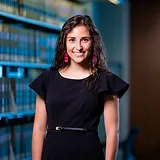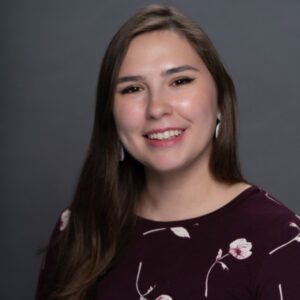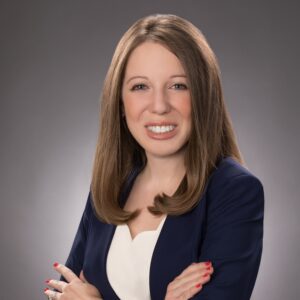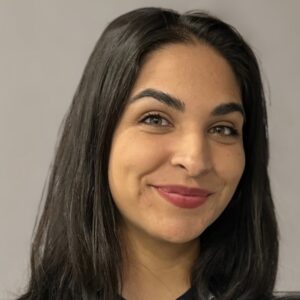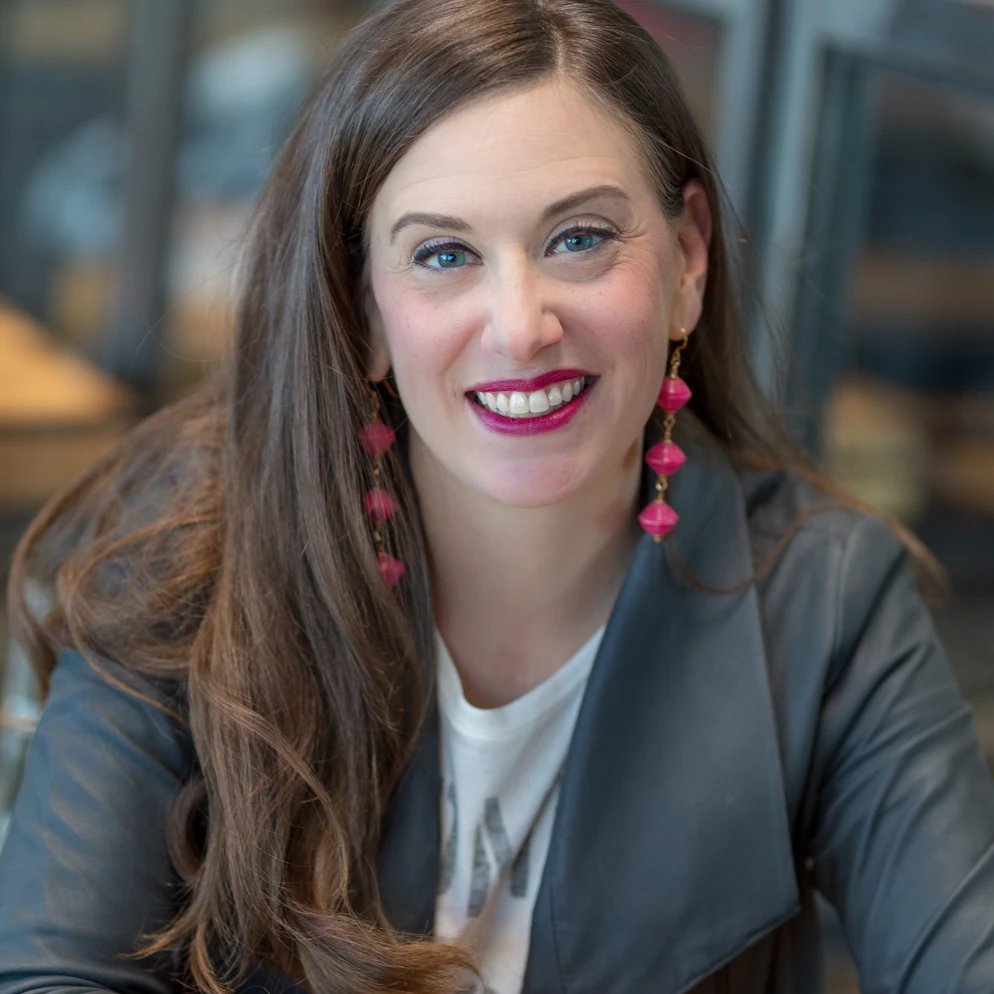
Susan Byrnes Long is the founder of How She Got Here, a podcast of “conversations with everyday extraordinary women.” Through her podcast, Susan has uncovered a deep-seated interest in women’s empowerment and leadership, hoping to transform society’s vision of women for generations to come. She wants to help women in the United States, especially those who listen to her podcast, push past the simple opportunity to “be at the table” and instead recognize that women have a right to be at the table. It is through her podcast that Susan recognized the need to continue sharing the stories of women to bring equilibrium to the table of leadership – especially in politics.
Susan was born and raised in Spartanburg, South Carolina, situated south of Charlotte. Politics was never a taboo subject for Susan’s family; she comes from a long line of veterans who instilled in her that voting was her “patriotic duty”. In fact, Susan’s first role model was Congressmember Elizabeth Patterson, a Democratic congresswoman from Susan’s home state of South Carolina. Congressmember Patterson, commonly referred to as “Liz” by Susan’s family, was a friend of Susan’s grandmother, whom Susan called a “dyed in the wool Republican.” Susan admired Liz for her ability to maintain authentic relationships with her constituents, including her grandmother, regardless of their partisanship affiliation. “Everyone mattered to Liz”, said Susan, “[a]ll of our stories matter, and Liz really got that.”
Though Susan was involved in politics from a young age, she admittedly was not fully exposed to the political process until she went to study for her undergraduate education at Converse College, a four-year, all-women’s institution. Susan recognized for the first-time what empowerment meant to her, allowing Susan to visualize herself in a leadership role for the first time. The correlation of an all-women student body allowed for a majority of the leadership roles to be filled by powerful women on campus. It was at Converse College that Susan served in her first political leadership role: a delegate for the South Carolina Student Legislature.
The South Carolina Student Legislature (SCSL) program provides college students with the ability to visit the South Carolina state house and participate in a mock state government session. Students are able to present, write, and vote on mock bills, exposing college students to the detailed process of law formation. Susan served as a South Carolina State Senator, saying “[i]t really is a part of government that every U.S. citizen should understand.” When asked about her personal experience with gender-based barriers, Susan says she faces them every day, even if some are smaller than others. Susan recounts a recent barrier she faced when purchasing a vehicle. Upon securing her title for the vehicle, she realized that her name wasn’t listed and, instead, the vehicle title was under her husband’s name. In another instance, Susan and her husband were beginning reconstructive work to her home and, during a conference discussion at a local bank, she was not given a seat at the table – literally. Susan recognizes that most women face these barriers every day but because we, as women, experience these obstacles from a young age, we tend to “shrug it off”. However, Susan says “it is worth noting and worth trying to change, especially for the generations coming behind us.”
Susan reached a pivotal moment in her life where she realized that she was no longer going to “sit on the sidelines”, as she called it, hoping to take part of a movement to bring more women into roles of empowered leadership. She began reaching out to her closest mentors and friends for advice, one of whom was Dr. Walker, a history professor and acquaintance of Susan’s. Dr. Walker advised Susan to start looking for empowerment within the history of the women’s movement. Susan gathered strength from books like Century of Struggle by Eleanor Flexner and Ellen Fitzpatrick as well as Sojourner Truth’s book, A Narrative of Sojourner Truth, dedicated to capturing the stories of women. Susan believes that we, as women, need an education of our self, saying “the history books [read in school] weren’t written by us – we were not at the table.”
Susan wanted to organically help gather the stories that make up women’s history; she wanted to create a platform to share those stories that needed to be heard. Sequentially, Susan founded the How She Got Here podcast. How She Got Here is a podcast that shares Susan’s conversations with everyday extraordinary women. She has interviewed a variety of women with ambitions and careers ranging from politics to TV broadcasting, and beyond. Looking forward, Susan hopes that her work with the podcast will make a meaningful impact on her listeners to not only recognize the disparity for women in the United States, but to also act on it. She says “it is easy for us to look at the scope of where we are right now and feel that change is not happening fast enough. This work is not going to be finished in our lifetime.”
Susan advises women of all backgrounds and aspirations to gather, what she calls, an “executive board”. An executive board should consist of people who know you or are capable of having ideas bounced off of them. Susan utilized her own “executive board” when beginning How She Got Here. And above all: Susan advises women to just jump. Susan says, “until someone themselves jumps, then they are all talk. It is the action that you’ve gotta take.”
Written in loving memory of Congressmember Elizabeth Patterson.
Website: https://howshegothere.com
Facebook: https://www.facebook.com/howshegothere/
Twitter: @howshegothere
Instagram: @howshegothere


